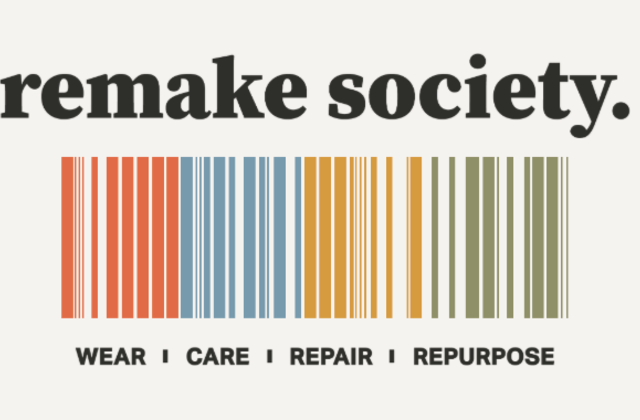Fashion, clothing and textiles
What is it?
Beni is a free browser extension that makes online secondhand shopping more seamless. It intercepts online shopping searches and directs users to the same or similar products on leading resale marketplaces such as Rent the Runway and Vestaire Collective (Beni, 2022). Currently, Beni supports 500 retail sites (Marie Claire, 2022).
Why is this important?
The global fashion industry produced around 2.1 billion tonnes of GHG emissions in 2018, equalling 4-10 percent of the global total (McKinsey & Company, 2020). For the fashion industry to stay on the 1.5-degree pathway prescribed by the IPCC, one in five garments must be traded via circular business models, such as resale, by 2030 (McKinsey & Company, 2020). In recent years, the secondhand market has been growing rapidly, forecasted to expand by 127 percent by 2026 (threadUP, 2022). Consumers are increasingly receptive to the idea of buying secondhand. However, the secondhand apparel market is still far from being mature. Despite 93 percent of US shoppers being open to buying secondhand, only 50 percent have purchased secondhand apparel within the past year (threadUP, 2022). This intention-action gap needs to be narrowed to accelerate towards a more circular fashion industry.
Main resource strategy: Slowing the resource loop by extending the lifetime of clothes.
Business model aspects:
- Value Proposition: Free browser extension that makes secondhand apparel shopping easier for users
- Value Creation & Delivery: The Beni browser extension is compatible with both Safari and Chrome. When users are browsing for apparel items, Beni suggests the same or similar secondhand alternatives aggregated from its partner secondhand marketplaces, such as Rent the Runway and Vestaire Collective. It makes the secondhand shopping experience more seamless.
- Value Capture: Beni receives commissions from partner secondhand platforms when users purchase secondhand items suggested by Beni.
Strategies for degrowth/ sufficiency (based on sufficiency strategies from Niessen & Bocken, 2021):
- Green alternative: Beni directs users to secondhand alternatives to branded apparel
Business model experimentation practices:
The idea of Beni was originally envisioned in 2020 by founder Sarah Pinner as her thesis project at Kellogg School of Management at Northwestern University (Independent, 2022). In its early stages, the startup has been supported by the university's entrepreneurial ecosystem. For instance, they received financial support and networking opportunities through a variety of programs at the school, including Kellogg’s Social Impact department and the Zell Fellows program (Poetsandquants, 2022). More recently, Beni participated in Google’s first Circular Economy startup accelerator scheme in October 2022 (Google, 2023).
Sources:
Beni (2023). About us. Accessed 21 February 2023 at: https://www.joinbeni.com/about
BoF Insights (2021). The future of fashion resale. Accessed 21 February 2023 at: https://www.businessoffashion.com/reports/retail/the-future-of-fashion-resale-report-bof-insights/
Edie (2023). Amazon and Google mark sustainability accelerator milestones with circular economy focus. Accessed 21 February 2023 at: https://www.edie.net/amazon-and-google-mark-sustainability-accelerator-milestones-with-circular-economy-focus/
Google (2023). How startups are supporting the circular economy. Accessed 28 February 2023 at: https://blog.google/outreach-initiatives/entrepreneurs/circular-economy-accelerator/
Independent (2022). Santa Barbara Entrepreneurs Launch Beni, a Browser Extension for Secondhand Shopping. Accessed on 21 February 2023 at: https://www.independent.com/2022/12/02/santa-barbara-entrepreneurs-launch-beni-a-browser-extension-for-secondhand-shopping/
Marie Claire (2022). This chrome extension just made secondhand shopping easier than ever. Accessed on 21 February 2023 at: https://www.marieclaire.co.uk/fashion/beni-chrome-extension-795066.
McKinsey & Company (2020). Fashion on climate. Accessed on 21 February 2023 at: https://www.mckinsey.com/~/media/mckinsey/industries/retail/our%20insights/fashion%20on%20climate/fashion-on-climate-full-report.pdf
Niessen, L., & Bocken, N. M. P. (2021). How can businesses drive sufficiency? The business for sufficiency framework. Sustainable Production and Consumption, 28, 1090-1103. doi:10.1016/j.spc.2021.07.030
Poetsandquants (2022). 2022 Most Disruptive MBA Startups: Beni, Northwestern University (Kellogg). Accessed on 21 February 2023 at: https://poetsandquants.com/2022/12/16/2022-most-disruptive-mba-startups-beni-northwestern-university-kellogg/
ThredUP (2022). Resale report 2022. Accessed 27 February 2023 at: https://www.thredup.com/resale/static/2022-resaleReport-full-92a77020598ceca50f43227326100cc2.pdf
***
About project Circular X
Project Circular X is about ‘Experimentation with Circular Service Business Models’. It is an ambitious research project funded by the European Research Council (ERC) which supports top researchers from anywhere in the world. Project CIRCULAR X runs from 2020-2025. The project is led by Principal Investigator (PI) Prof Dr Nancy Bocken, who is joined by a multidisciplinary team of researchers at Maastricht Sustainability Institute (MSI), Maastricht School of Business and Economics, Maastricht University. The project cooperates with businesses who want to innovate towards the circular economy.
Project Circular X addresses a new and urgent issue: experimentation with circular service business models (CSBMs). Examples of such new business models include companies shifting from selling products to selling services and introducing lifelong warrantees to extend product lifetimes. However, CSBMs are far from mainstream and research focused on experimentation is little understood. The research aims to conduct interdisciplinary research with 4 objectives:
- Advancing understanding of CSBMs; their emergence and impacts
- Advancing knowledge on CSBM experimentation
- Developing CSBM experimentation tools
- Designing and deploying CSBM experimentation labs
Funding source
This project has received funding from the European Research Council (ERC) under the European Union’s Horizon 2020 research and innovation programme, grant agreement No. 850159.
Using of this information
When you refer to this case, please use the following source:
Circular X. (2023) Case study: Beni - Secondhand shopping browser extension. Accessed from www.circularx.eu



